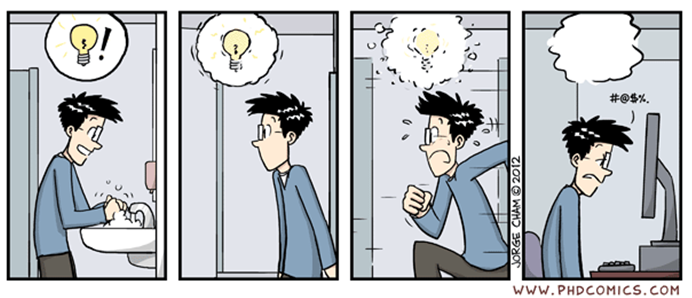
How to Choose a Topic What are you interested in? That narrows it down if you rule out "The process of teaching banjo picking in Appalachian home schools." And it really narrows down your topic if you are interested in that topic! Do some background reading in a subject area that interests you. Read general information in an encyclopedia. Do a search in one of the databases that you have learned about using key words as search terms. If you find a good article that interests you, check the bibliography at the end of that article for more sources related to that topic. When reading articles of interest, look to the end and read the Discussion section. Authors will often offer suggestions for further study or additional research needed. As you read, or even skim titles of studies already done, keep your mind open for specific questions, on recent developments and controversies. It's a great idea to keep a running list of possible topics/questions as they come to your mind - you can fine-tune later.
| |  | |
The most common mistake of the novice researcher is to choose a topic that is too broad.  | I want to know what life is all about. |
An experienced researcher will narrow the topic.
My study is called "The Five-Second Rule Explored: How Dirty Is That Bologna?" | 
| To narrow a topic, use 4 areas: population, context, time, geography | or as the areas are more commonly known: WHO, WHAT, WHEN, WHERE | Examples: WHO: belly dancers, college students on Pell grants, 8-year old rock climbers WHAT: micro-organisms, shoe polish, #2 pencils WHEN: in the last 25 years, during Spring Break, since the last census WHERE: affluent neighborhoods, jelly fish farms, rain forests, Central Park So, your topic might be: Micro-organisms on Belly Dancers in Central Park During Spring Break Now that's pretty specific! | |
You can also add HOW and WHY to narrow your
topic! | | |
 | RESEARCH QUESTION | | | A research question is one that narrows the perspective or focus of the topic and identifies what is to be studied or a problem that will be researched. It should identify the variables to be considered and also specify the population being studied if applicable. |
|

Ask "what?", "why?", "how?" and particularly "so what?" as you formulate your question. It should not be a question that can be answered by a simple "yes" or "no."
It should also be a question that can be measured and/or
tested. This is very important! No opinions or interpretations
here! State your research problem as a clear question - identify the problem. Be aware that as you study your topic, your question is very likely to evolve or to split into more than one question. Be prepared to revise your question, to develop it, and consequently to improve it as your study progresses. A great way to learn about research is to read research articles. In the discussion section (at the end of the article) authors will often mention new research questions that surfaced during that research project. This is a good way to find new topics of interest!
Kemp (1992) stated that "the kinds of problems addressed by researchers are those which arise, not out of the researcher's ignorance, but from a firm knowledge of both the particular context of the problem as well as the literature which relates to it" (p. 8).
Research questions MUST
be specific.Below, you will find some research questions that are too broad, marked NO
and then some that are more specific, marked
YES
NO What can be done to make a better band program? NO
YES What resources are helpful to beginning band students in a rural music program with limited funds?
YES
NO
Does music make students healthier? NO
YES
How prevalent is obesity among students who participate in marching band compared to the general student body?
YES
NO
How can freshman choral students' rhythm be improved? NO
YES To what extent do freshman choral students' rhythm reading performance from 2 interventions (directed and self-directed) differ?
YES
You may notice that the more specific the question, the longer it is in order to narrow the focus!
Here's one outside of the music education realm:
NO What is the effect on the environment from global warming? NO
YES
How is glacial melting affecting penguins in Antarctica?
YES
 
Examples of Good and Bad Research Questions
Check it out!!
|
 | RATIONALE Why is this topic worth investigating? You must make a case for this being a substantial inquiry and how it will benefit the discipline of music education. |

Created and maintained by Vicky V. Johnson 
|